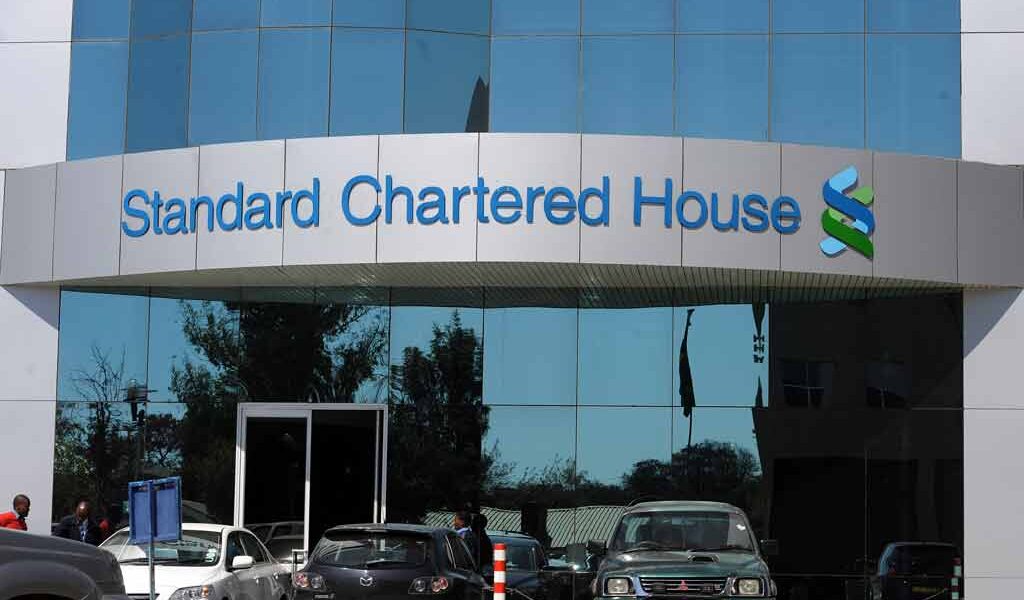- Bank admits knowledge of the case
- Oseg Group says Bank ballooned their debt to sink them
- Court lowers down the ballooned figure
Gazette Reporters
Standard Chartered Bank has admitted knowledge of a case in which it is accused of contravening bank policies and allowing a multi-million overdraft facility for a client company, which is alleged to be a competitor of powerful individual’s personal businesses, to be continuously drawn against without authority, ballooning the debt.
Oseg has made a damning allegation that their own investigations reveal that once their account reached charge-off status, instead of being written-off and instalments and interest cease, their accounts were kept alive through unauthorised debiting of their overdraft facility that was meant for Oseg working capital.
The continuation of the debiting of the overdraft , Oseg group alleges, continued until they realized that not only did they not authorize the Bank to debit the overdraft account to service the Non Performing Loans, but the Bank had also exceeded the overdraft limit of P1 Million and proceeded to debit their account over the limit unauthorised.
“Upon us noticing that the bank was servicing the non performing loans from the overdraft and that the overdraft had ballooned and increased our exposure exponentially, we immediately informed Head of Business Banking. The Bank managed to stop the instalments being debited through our overdraft account but instead continued applying interest on the outstanding loan amounts even after judgment had been sought and awarded,” states the Oseg Group complaint which has also been sent to Bank of Botswana.
Oseg group told Bank of Botswana that the Standard Chartered Bank continued to run and apply the interest until the debt reached P4.4 Million. A charge-off is when the bank declares that an amount of debt is unlikely to be collected. This occurs when a consumer becomes severely delinquent on a debt. Traditionally, creditors will make this declaration at the point of six months without payment. According to Oseg, their last payment made to the loan accounts was on the 9th July 2014 and as expected the accounts were supposed to be charged-off in November 2014.
“Assuming our accounts were charged-off in November 2014 as per normal banking regulations, the balance on our loans would have been P3.5 million less P850 thousand (deposit held in call) = P2.6 million. In November 2014, instead of the Oseg accounts charged-off and interest and instalments ceased to apply, we realized that the accounts were kept alive by debiting the overdraft account which then had a limit of P1 Million,” they affirm in their letter to Bank of Botswana.
The overdraft account, they allege in the documents this publication has seen, was debited from November 2014 to April 2015 surpassing the P1 Million limit and reaching an amount close to P1.6 million to service the loans that could have been charged off in November 2014.
“The result of all this illegal and unauthorised transactions on the loan account and overdraft account meant that our outstanding loan amount ballooned to more than P4.4 Million as at July 2016 as we accrued interest and penalties on the unauthorised overdraft and the loan accounts,” they say.
The court case,
In Nov 2014, Oseg says their debt was at P2.7 Million but they were shocked to learn two months after that that Standard Chartered Bank’s lawyers were demanding P3.5m (plus interest).
“In April 2015 the bank gave an order that Oseg only pays P2.6m. In May 2016 the appointed bank auditor- Deloitte Edward Dyer demanded P4.1m from Oseg,” Oseg documents say, further adding that what made matters worse is that even after obtaining the judgment and writ of execution, the bank kept on loading the interest and ballooning the debt over and above the amount awarded by the Court, hence the difference between what the bank demanded and what the court ordered.
“Effort to implement their covert operations have contravened some of the laws and regulations governing the Bank in Botswana and United Kingdom. Amongst them are as follows; the National Clearance and Settlements Systems Act of( Botswana Bank of Botswana ) , treating Customer Fairly (FCA ACT UK) , disregarding the Banks primary duty of disclosure, failure to implement the court orders and falsification of records,” he says in some of his letters shared with three governing bodies.
While the Central Bank confirmed last week to this publication that they had received the complaint and were investigating the allegations Standard Chartered leadership did not want to be drawn into the matter. Admitting that they are aware of the case, they said they will not be able to make any comments on the matter due to client confidentiality agreements.
“We are aware of the allegations and claims made by Oseg. Standard Chartered Bank Botswana remains committed to adhering to all local regulatory and legal requirements. Due to client confidentiality, we are unable to comment further on this matter,” responded Tumi Ramsden, the Bank’s head of Corporate Affairs and Marketing.

